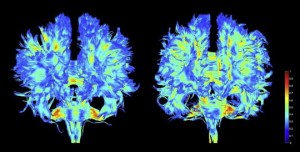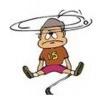Concussion in Youth Hockey: New Frontiers in Diagnostic Imaging
Dr. Naznin Virji-Babul Discusses Concussion in Youth Hockey Study on CBC Radio
Diffusion Tensor Imaging of Sports-Related Concussion in Adolescents. N. Virji-Babul, M. Borich, N. Makan, T. Moore, K. Frew, C.A. Emery, L.A. Boyd. Pediatric Neurology (2013) 48: 24-29
http://www.pedneur.com/article/S0887-8994(12)00415-8/fulltext
We recently completed a study to examine sought to examine changes in white-matter integrity after sports-related concussion in adolescents, and examine the association between changes in white-matter integrity and a clinical measure of concussion. Twelve adolescents, aged 14-17 years with a sports-related concussion within 2 months, and 10 age-matched adolescents with no history of concussion were evaluated with the Sports Concussion Assessment Tool 2 and diffusion tensor imaging. Two measures compared the two groups: fractional anisotropy and mean diffusivity. Whole-brain fractional anisotropy values significantly increased (F(1,40) = 6.29, P = 0.010), and mean diffusivity values decreased (F(1,40) = 4.75, P = 0.036), in concussed athletes compared with control participants. Total scores on the Sports Concussion Assessment Tool 2 were associated with whole-brain fractional anisotropy. Mean diffusivity values with lower scores were associated with higher fractional anisotropy (R2 = 0.25, P = 0.017) and lower mean diffusivity (R2 = 0.20, P = 0.038). We provide evidence of structural changes in the integrity of white matter in adolescent athletes after sports-related concussion.

Whole-brain diffusion tensor imaging tractography for one healthy adolescent (left) and one adolescent after concussion (right). Warmer colors indicate higher fractional anisotropy, whereas cooler colors indicate lower fractional anisotropy values. Diffuse increases in white matter tract fractional anisotropy are present after injury compared with an uninjured brain, likely reflecting subtle tissue damage associated with concussion.

